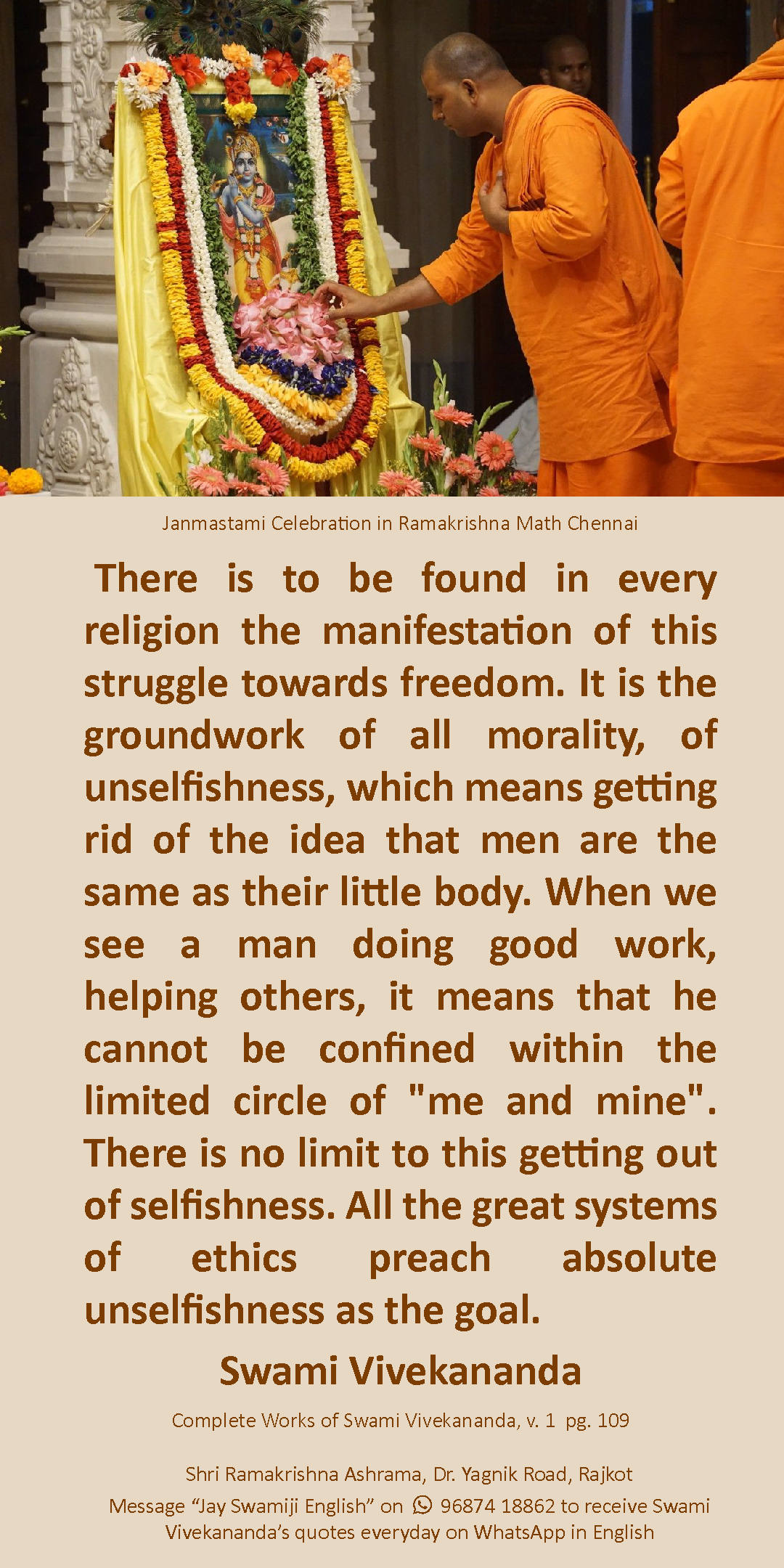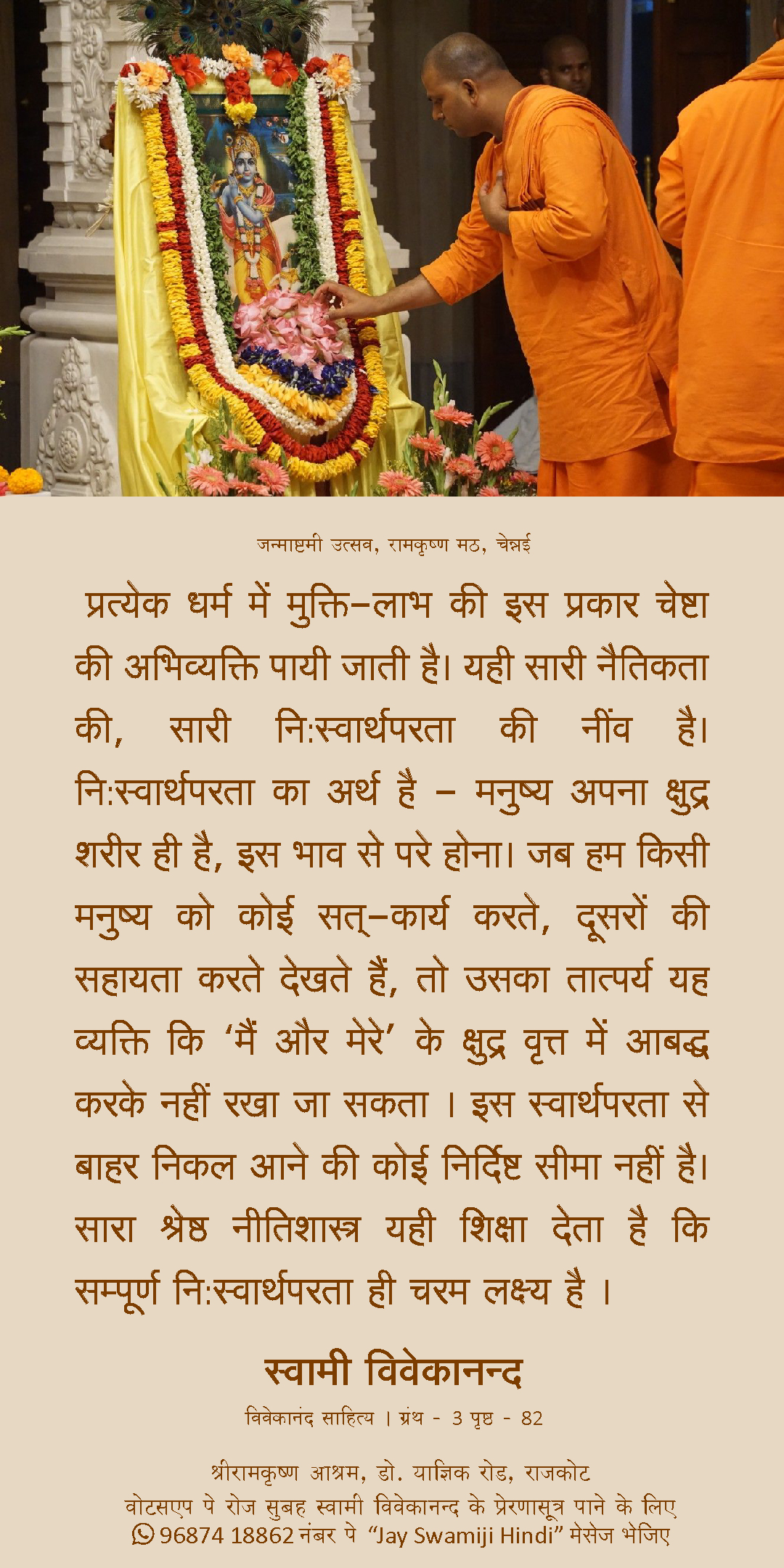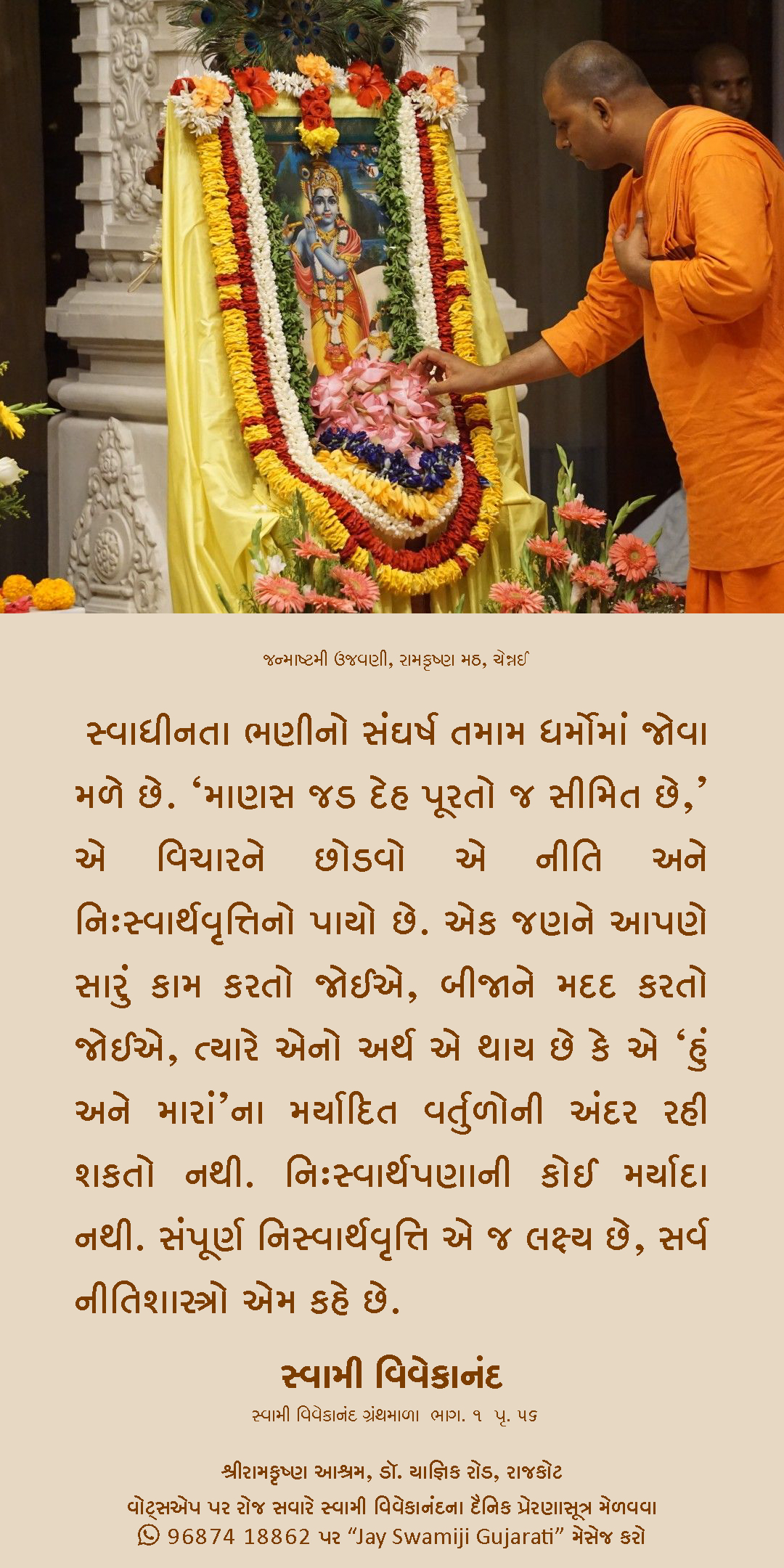There is to be found in every religion the manifestation of this struggle towards freedom. It is the groundwork of all morality, of unselfishness, which means getting rid of the idea that men are the same as their little body. When we see a man doing good work, helping others, it means that he cannot be confined within the limited circle of “me and mine”. There is no limit to this getting out of selfishness. All the great systems of ethics preach absolute unselfishness as the goal. (Complete Works of Swami Vivekananda, v. 1 pg. 109.)
સ્વાધીનતા ભણીનો સંઘર્ષ તમામ ધર્મોમાં જોવા મળે છે. ‘માણસ જડ દેહ પૂરતો જ સીમિત છે,’ એ વિચારને છોડવો એ નીતિ અને નિઃસ્વાર્થવૃત્તિનો પાયો છે. એક જણને આપણે સારું કામ કરતો જોઈએ, બીજાને મદદ કરતો જોઈએ, ત્યારે એનો અર્થ એ થાય છે કે એ ‘હું અને મારાં’ના મર્યાદિત વર્તુળોની અંદર રહી શકતો નથી. નિઃસ્વાર્થપણાની કોઈ મર્યાદા નથી. સંપૂર્ણ નિસ્વાર્થવૃત્તિ એ જ લક્ષ્ય છે, સર્વ નીતિશાસ્ત્રો એમ કહે છે. (સ્વામી વિવેકાનંદ ગ્રંથમાળા ભાગ. ૧ પૃ. ૫૬)
प्रत्येक धर्म में मुक्ति-लाभ की इस प्रकार चेष्टा की अभिव्यक्ति पायी जाती है। यही सारी नैतिकता की, सारी नि:स्वार्थपरता की नींव है। निःस्वार्थपरता का अर्थ है – मनुष्य अपना क्षुद्र शरीर ही है, इस भाव से परे होना। जब हम किसी मनुष्य को कोई सत्-कार्य करते, दूसरों की सहायता करते देखते हैं, तो उसका तात्पर्य यह व्यक्ति कि ‘मैं और मेरे’ के क्षुद्र वृत्त में आबद्ध करके नहीं रखा जा सकता । इस स्वार्थपरता से बाहर निकल आने की कोई निर्दिष्ट सीमा नहीं है। सारा श्रेष्ठ नीतिशास्त्र यही शिक्षा देता है कि सम्पूर्ण नि:स्वार्थपरता ही चरम लक्ष्य है । (विवेकानंद साहित्य ग्रंथ 3 पृष्ठ 82)



